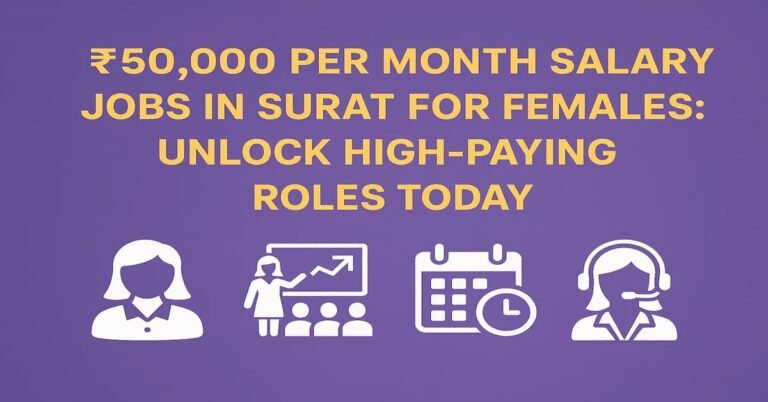In 2025 and beyond, remote jobs continue to grow in popularity, and remote data entry jobs are no exception. These jobs offer flexibility and the chance to work from home, but as with any profession, it’s important to understand both the pros and cons before diving in. In this blog, we’ll explore the truth about remote data entry jobs, including their legitimacy, earning potential, and the skills required to succeed.
If you’ve been considering starting a remote data entry career or are simply curious about what these jobs entail, keep reading. By the end of this article, you’ll have a clear understanding of what remote data entry jobs in 2025-26 really look like.
What Are Remote Data Entry Jobs?
Remote data entry jobs involve the process of inputting data into digital systems or databases from home. These jobs can range from simple data entry tasks like entering contact information into spreadsheets to more complex data management positions that require knowledge of databases and software tools.
Types of Remote Data Entry Jobs:
- Basic Data Entry: Inputting information into a system, updating records, and handling forms.
- Medical Data Entry: Entering medical records or patient data for healthcare providers.
- Transcription: Converting audio or video recordings into written text, a common data entry role in fields like law or healthcare.
- Data Cleaning and Management: Ensuring that data is organized, correct, and consistent across multiple databases.
The tasks may vary depending on the company and industry, but all share the common requirement of transferring or updating data in digital formats.
The Pros of Remote Data Entry Jobs in 2025-26
1. Flexibility
One of the biggest advantages of remote data entry jobs is the flexibility they offer. These positions typically allow you to choose your hours, which means you can work at times that fit your schedule. Whether you’re a night owl or prefer to work in the mornings, the choice is yours.
2. Minimal Experience Required
Unlike many other remote jobs, data entry positions often don’t require a degree or specialized experience. Many employers are looking for individuals who have basic computer skills, can type quickly, and are detail-oriented. This makes it an ideal entry-level job for those looking to break into the remote workforce.
3. Low Barrier to Entry
Since most remote data entry jobs don’t require advanced education or certifications, the barrier to entry is relatively low. This makes it an accessible career option for individuals who may not have formal qualifications but possess the necessary skills.
4. Steady Demand
As companies increasingly rely on digital tools and databases, there is a growing demand for data entry professionals. From healthcare to e-commerce, almost every industry requires accurate data management. In 2025-26, the demand for remote data entry workers is expected to rise, making it a stable career option for many.
5. Work From Anywhere
Remote data entry jobs give you the freedom to work from anywhere in the world, as long as you have a computer and a reliable internet connection. This can be especially appealing for digital nomads or those who simply want to avoid long commutes.
The Cons of Remote Data Entry Jobs in 2025-26
1. Low Pay (Initially)
While remote data entry jobs can offer flexibility, they often come with a relatively low pay scale, especially when starting out. Many entry-level positions pay on an hourly basis, with rates ranging from $10 to $15 per hour. While this is acceptable for some, others may find it insufficient, particularly if you’re looking for full-time work.
2. Repetitive Tasks
Data entry jobs, by nature, can be repetitive. The work often involves entering large volumes of data into systems without much variation. This can lead to burnout or boredom, especially if you’re doing the same task for hours at a time.
3. Scams and Unreliable Employers
The remote data entry job market can sometimes be flooded with scams. Many so-called “data entry jobs” require an upfront fee for training or tools, or they may promise an unreasonably high salary for simple tasks. It’s essential to thoroughly research any potential employer and avoid opportunities that seem too good to be true.
4. Lack of Growth Opportunities
In many cases, remote data entry jobs don’t offer much room for career advancement. While some positions may allow you to move into higher-level administrative or technical roles, others may be more limited. It’s important to be realistic about your career trajectory when pursuing data entry jobs.
Skills You Need for Remote Data Entry Jobs
Even though data entry jobs don’t typically require a degree, there are still specific skills that can help you succeed and increase your earning potential.
1. Typing Speed and Accuracy
One of the most important skills for a data entry role is typing speed. The faster and more accurately you can type, the more productive you will be. Many employers test applicants on their typing speed before hiring, so it’s important to practice regularly.
2. Attention to Detail
Since data entry involves working with large volumes of information, attention to detail is crucial. You’ll need to ensure that data is accurately entered, with no mistakes or omissions.
3. Familiarity with Software and Tools
While you don’t need advanced technical skills, being familiar with tools like Excel, Google Sheets, and other data management software will give you a competitive edge. Some jobs may also require knowledge of specific industry software, so it’s worth investing in learning relevant programs.
4. Communication Skills
As a remote worker, you’ll need to be comfortable communicating with team members or managers via email, chat, or video calls. Good communication skills will ensure that you stay on the same page as your employer and meet deadlines effectively.
5. Time Management
Remote data entry jobs often give you the flexibility to set your own hours, but they also require strong time management skills. Being able to prioritize tasks and work efficiently will help you meet deadlines and stay productive.
How to Find Legitimate Remote Data Entry Jobs
1. Job Boards
Several job boards focus specifically on remote work and frequently list data entry positions. Websites like We Work Remotely, FlexJobs, and Remote.co regularly feature legitimate remote data entry jobs.
2. Freelance Websites
Freelance platforms like Upwork, Fiverr, and Freelancer also have many data entry opportunities available. These platforms allow you to apply for short-term and long-term projects, making it easier to find work that suits your schedule.
3. Company Websites
Some large companies hire remote data entry workers directly. Check the careers section of company websites in industries like healthcare, finance, and retail, as these sectors often require significant amounts of data entry.
The Future of Remote Data Entry Jobs
As technology advances, we may see more automation in the data entry field. Artificial intelligence and machine learning tools are increasingly being used to process and organize data, which could lead to a reduction in entry-level jobs. However, there will always be a need for human oversight, especially in fields that require confidentiality, accuracy, and a personal touch.
In 2025-26, while the role of data entry might evolve, there will continue to be a demand for skilled professionals who can handle and organize information, making it a viable career choice for many.
Conclusion
Remote data entry jobs in 2025-26 offer an accessible way to enter the remote work world without requiring a degree. They provide flexibility, minimal barriers to entry, and the chance to work from anywhere. However, the work can be repetitive, and pay may be low initially. If you’re looking for a career that offers both freedom and the opportunity to learn new skills, remote data entry jobs might be the right fit for you.


